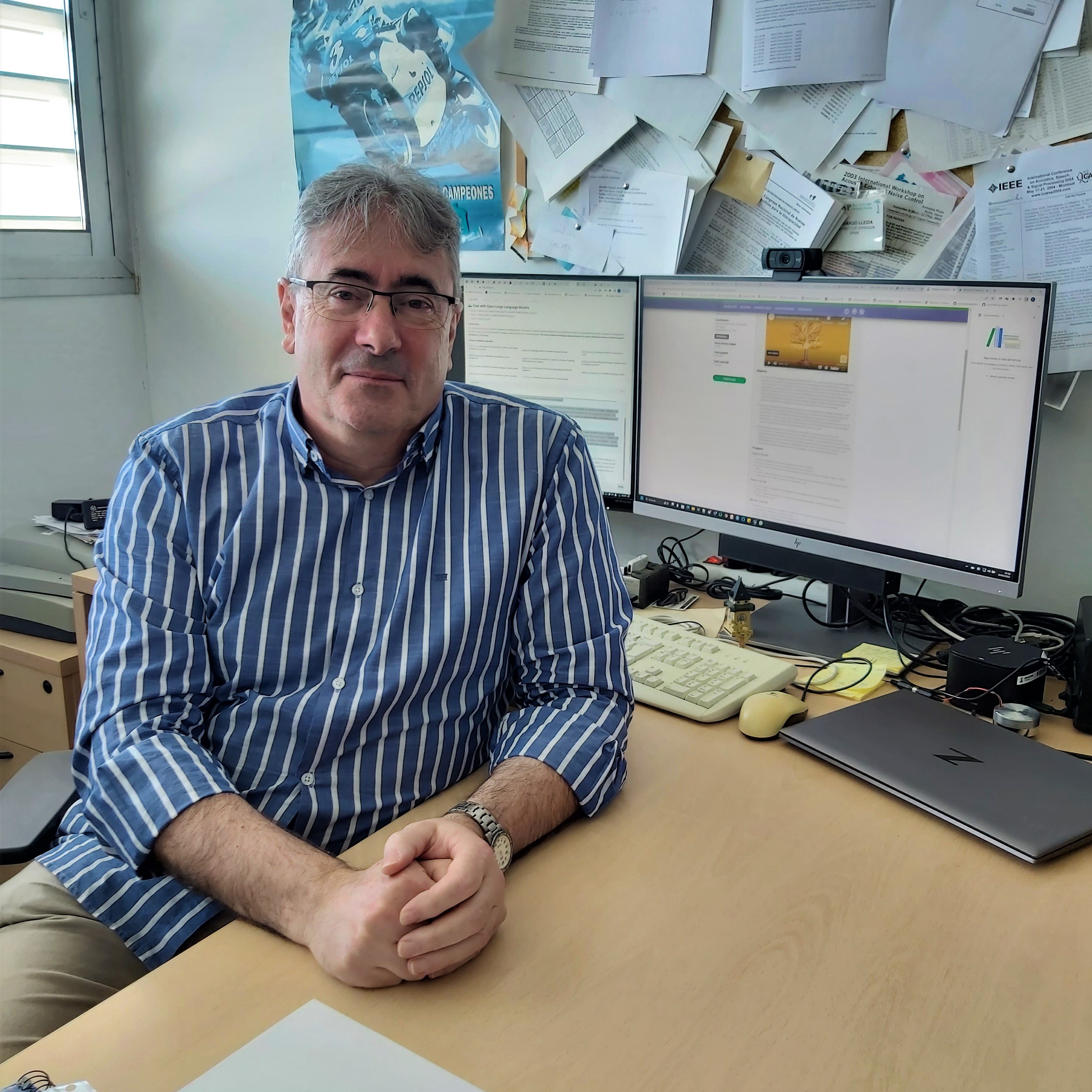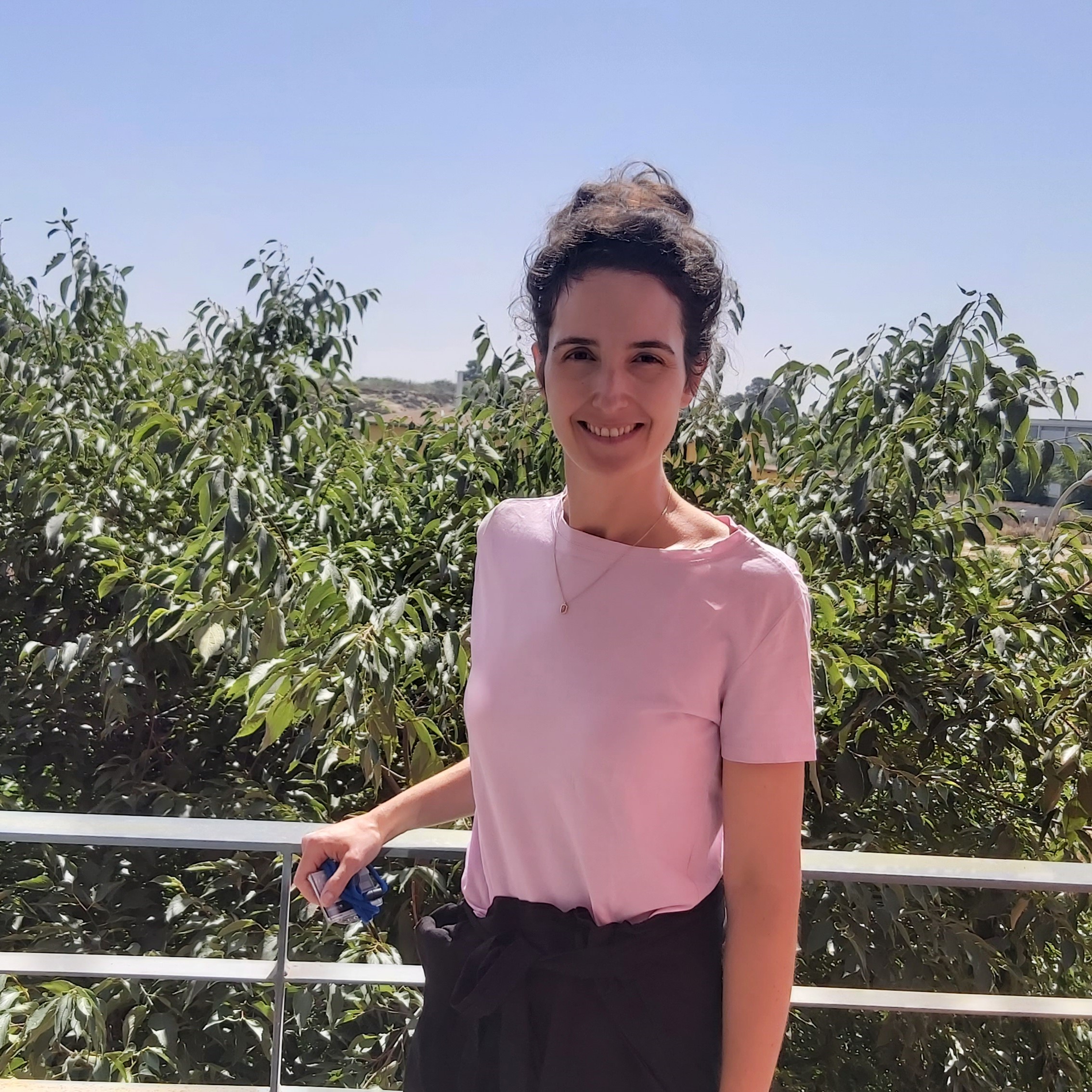
Why did you decide to go into research?
I have always liked technology and everything related to communication. My goal was to work in television and I got it. While I was studying Telecommunications Engineering in Barcelona, I got a job at Televisión Española on the technical side and that's when I realised that things related to signal processing and telecommunications really caught my attention. In the last year of my degree, a professor encouraged me to apply for a grant from Telefonica to do my final project and so I started working in the field of automatic voice recognition. Then, I joined a research group on these topics in Barcelona where I did my PhD thesis.
You studied Telecommunications Engineering in Barcelona, why did you return to Zaragoza?
It's true that I was doing very well in Barcelona, I was working in a pioneering group and I liked it, but I wanted to do something of my own. So, I was starting in Zaragoza telecommunications, I'm from Huesca and I saw the perfect opportunity to return. Also, curiously, although I left Televisión Española in Barcelona, I am currently the director of the RTVE Chair at the University of Zaragoza.
Was it always clear to you what you wanted to do?
Yes, quite clearly, by vocation I knew I wanted to do telecommunications, I've always liked it. Being able to talk to people from anywhere in the world seemed very exciting to me.
You are the principal investigator of the ViVoLab group, what are your main lines of research?
We do research on speech and language technologies. For example, how to do automatic voice recognition, how to recognise people through voice, how to clean a voice or audio signal or how to detect emotions. In addition, we also try to help people with speech problems to communicate by collaborating with special education schools. We try to make children realise that they are speaking, that they are producing voice. Also, related to this, we are working with the Aragonese centre for augmentative and alternative communication on the creation of a communicator, which is able to make natural sentences through a selection of pictograms.
Any ongoing projects you would like to highlight.
We have a Marie Curie project, called Esperante, which is dedicated to applying these speech technologies to languages and applications with few resources. The resources for us are speech and text. Also, Talento is another project in collaboration with the otorhinolaryngology service of the Hospital Clínico whose objective is to detect voice pathologies in a non-intrusive way. We record patients with vocal cord problems and analyse the recovery and evolution of the voice after an operation, for example.
How long have you been involved with the I3A?
Since the beginning in 2002.
In research, delving into the frontier of knowledge and generating new ideas is very rewarding
What would you highlight about the Institute?
The idea of creating the Institute was a very good one. At that time, research was done in departments and was quite closed, then with the creation of the I3A it was opened up and multidisciplinary groups were created. And, of course, I would also highlight the management support and infrastructures.
What do you like most about your profession?
On the teaching side, knowing that you are training engineers and being able to see how they evolve is what I like most. And then in research, delving into the frontier of knowledge and generating new ideas is very rewarding. Also, applying technology to people who have problems. It excites me to know that technology helps people.
What would you say to someone who is thinking about going into research?
We try to encourage them, but it's not easy. I like to make it clear what the situation is. It's an obstacle race and it's getting harder and harder, but I would encourage them because outside the university there is a lot of work, a lot of PhDs are needed. Those who have come out of our group are in companies doing research and have some responsibility, whether in Spain or abroad.
CLOSE-UP...
A dream: To do route 181, to travel the 181 lighthouses of the Iberian Peninsula.
Hobbies: I like cycling, motorcycling, walking and hiking.
Favourite band: Bruce Springsteen.
A trip: When I did the Camino de Santiago on a motorbike.
Favourite place: Rome.
How would you define yourself: As a constant and passionate person about technology and its social application.
